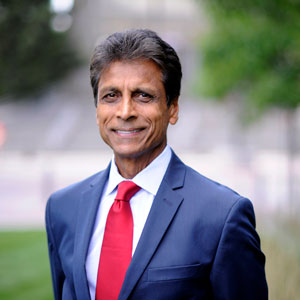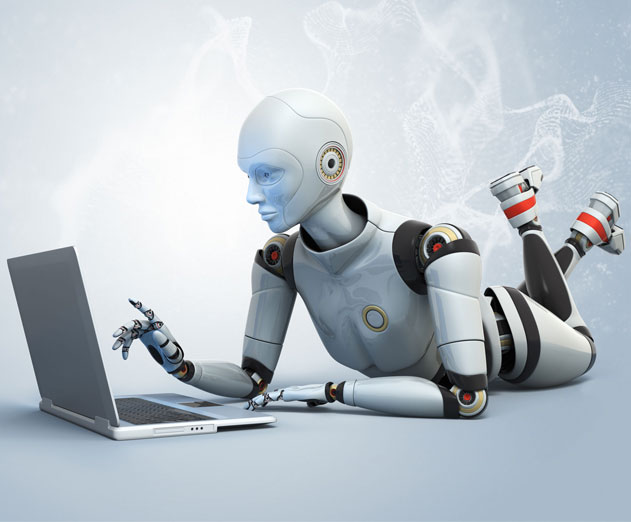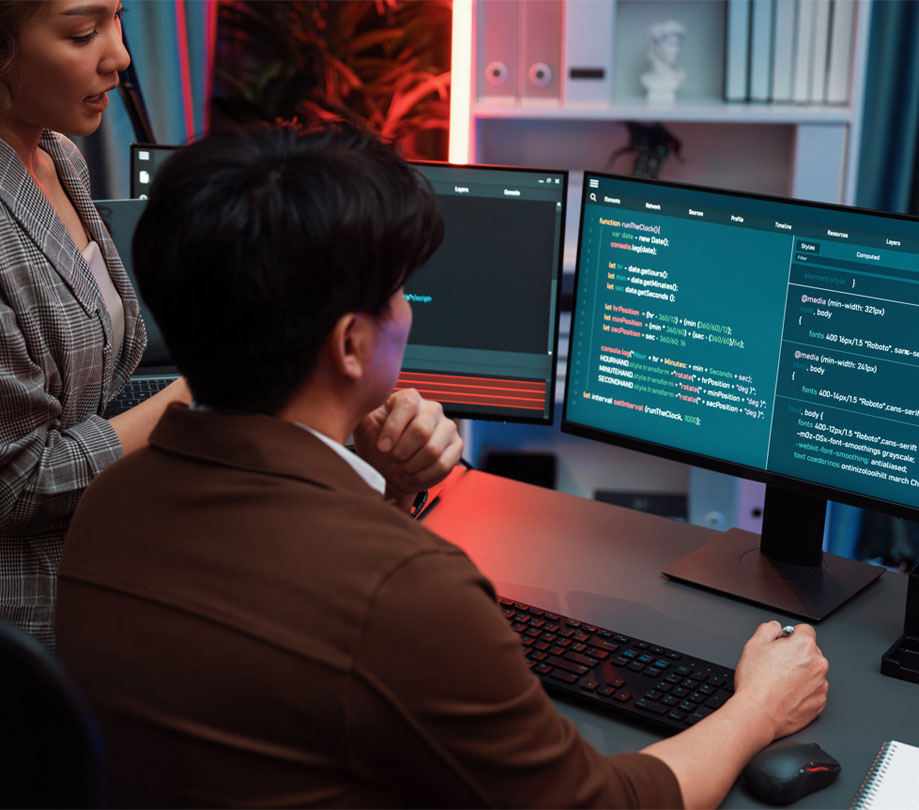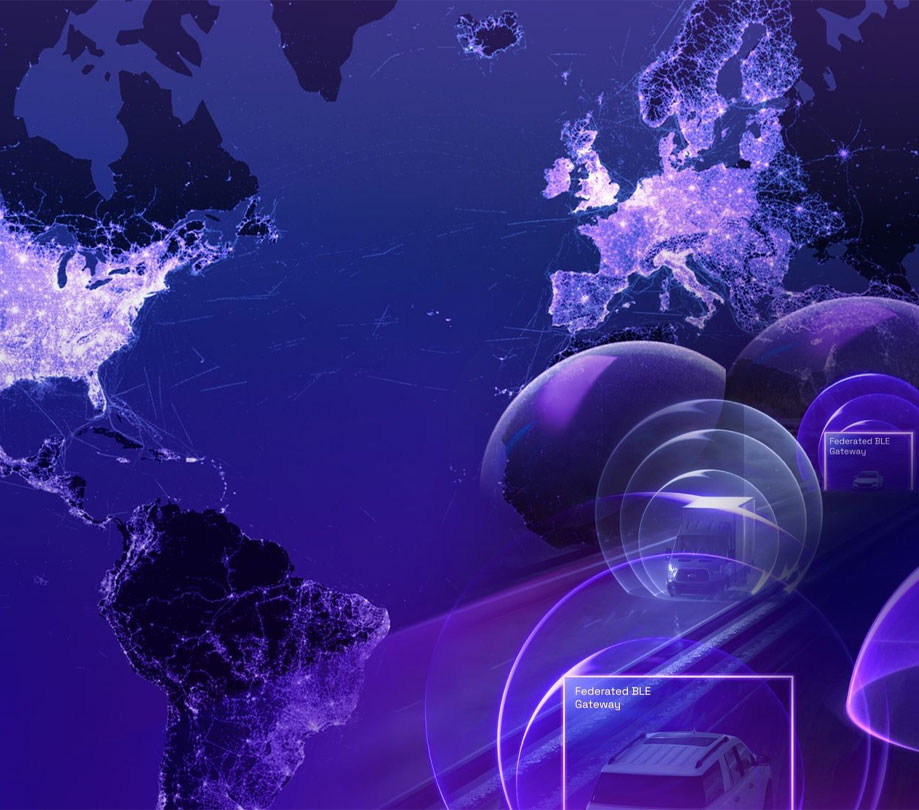Artificial Intelligence
Learning AI to stop the Terminator from taking your job
Tuesday, February 13, 2018

|
Richard Harris |
Learning AI (artificial intelligence), machine learning, and other skills can help you as a programmer while technology marches into the 21st century.
For me the mention of AI and machine learning shoots my thoughts right into the “Terminator” movies, and the great struggle to maintain human existence in the year 2029. The film series is based around a giant AI computing superintelligence named “Skynet”, which is essentially in control of the entire Earth, and a legion of robots that want to destroy anything that threatens it’s existence.
While it’s easy to toss AI and other tech into film imagination and the world of tomorrow, it’s equally as frightening to realize the ramifications it’s actually going to have on our every day lives. What it might look like to go to work in the morning, and how we spend our time earning a living.
AI makes way for machine automation, which opens the door to a machine taking your job.
But as a programmer, it’s easy to bunker yourself into the mindset of “I can’t be replaced”. To which I offer that in 2017 a Microsoft AI was able to write code on its own by stealing from other programs. And Google's Deepmind was able to mirror the way the human brain learns. It’s coming my fellow programmers, so you need to be ready.
There has always been a lag in what we can learn, and what is trending in technology that’s already been applied somewhere, this week, or even this year. The curriculum and training just can’t keep up with the emergence of spectacular discoveries and uses for technology that seems to evolve overnight. They call this a “skills gap”, and it’s just a polite way of saying “I don’t know how to do that yet”.
Companies are experiencing an acute skills gap in tech fields and are struggling to find qualified candidates that can not only provide the technical insights they need, but also have communications skills and high levels of creative problem-solving. Ongoing learning is necessary to keep from becoming irrelevant as the pace of change continues to accelerate.
We recently had a conversation with P.K. Agarwal, who serves as the Dean and CEO of Northeastern University–Silicon Valley. He gives us some insight into the skills gap and AI, how machine automation is going to change the workforce, and what skills you likely need to be preparing for now to stay relevant.
ADM: What type of skills gaps are you seeing in the workforce when it comes to AI?
Agarwal: Finding enough qualified people to handle the new technological challenges of data science, machine learning/AI presents a data issue at its core. First, data must be handled ethically and in a socially meaningful context that understands the humanity of us all. However, to accomplish this you must be a change agent. Secondly, you need to hire candidates that possess the latest skills for AI programming. Therefore, hiring data scientists and experts in machine learning/AI presents a special challenge of unearthing an individual with a hard STEM exterior, yet also with a soft relational center.
ADM: How do you think machine automation and AI will change the way we need to educate the workforce?
Agarwal: The elimination of repeatable and predicable tasks due to AI and machine learning presents an opportunity for us in the education business. We are also on the cusp of a major change in our workforce. The elimination of many job classes means that we have the possibility to reshape our workloads and potentially shift to a more rewarding work/life balance moving forward. Every challenge also presents an opportunity for growth and re-invention. As today’s workers meet these challenges, it is refreshing that industry leaders are re-imagining the role of education within the workplace, rather than apart from it.
ADM: In what ways can we help employees to ensure that they won’t lose their jobs to automation?
Agarwal: We can’t guarantee that any one particular job title won’t be lost to automation, but we can teach skills that are transferable to other occupations. By focusing on skills like critical thinking, communication, and collaboration, we can ensure that for dedicated employees, when one door closes, another will surely be open to them.
ADM: What opportunities are out there for highly skilled professionals to sharpen their skills or learn a new skill set?
Agarwal: There are many new opportunities for employees looking to bolster their skills. Boot camps, advanced degrees and micro-credential programs are all great ways for professionals to enhance their knowledge and learn the latest new developments. Many of these programs are offered online or during the evening so that full-time employees can participate on their own time.

P.K. Agarwal, Dean and CEO
of Northeastern University-
Silicon Valley
of Northeastern University-
Silicon Valley
ADM: What skills are most important for the 21st century workforce?
Agarwal: We’re seeing today that transferable skills are even more in-demand than many technical skills. In a Northeastern University-Silicon Valley survey last summer, we found remarkable insights about the skills gap challenge. 38% of those surveyed stated that data aggregation and analysis ranked as the biggest challenge. Surprisingly, the career strength chosen as most relevant for success was the need for communications skills, including an ability to explain ideas or concepts clearly and effectively. As technical jobs rapidly change, the ability to learn new skills and adapt tend to be more important than specific technical know-how. Emotional intelligence, people management, negotiation skills and creativity are becoming more important as we embrace new technological changes.
ADM: Do you think recent graduates are being well prepared for the new reality that is AI?
Agarwal: Some students are obviously being better prepared than others. Clearly having an up-to-date curriculum on the latest technologies is a big differentiator, however, the ones who will be successful in this disruptive transition are those who are genuinely curious and have learned how to learn, i.e., adapted a lifelong learning model. Combine this lifelong learning attitude with a good dose of soft skills, you have a student who most employable students in the future.
About P.K. Agarwal
P.K. Agarwal serves as the Dean and CEO of Northeastern University–Silicon Valley. He also serves as the Chairman of Future 500, a Bay Area-based pioneer in the area of global sustainability. Formerly, he was the CEO of TiE Global, an organization dedicated to fostering entrepreneurship across 61 cities in 18 countries. Prior to TiE, P.K served as Governor Arnold Schwarzenegger’s Chief Technology Officer for the State of California. He has also been in executive and management roles with ACS (now Xerox), NIC Inc., and EDS (now HP). PK helped pioneer the use of Internet in government and shaped the national and state policy in this area, dating back to Al Gore’s National Information Infrastructure Advisory Council in 1995. He had the unique distinction of having a U.S. national annual award named as the “P.K. Agarwal Award for Leadership in Electronic Government.” He also served as the president of the National Association of State CIOs and the National Electronic Commerce Coordinating Council (ec3). He is a fellow of the National Academy of Public Administration and an adjunct faculty at USC and USF.

Become a subscriber of App Developer Magazine for just $5.99 a month and take advantage of all these perks.
MEMBERS GET ACCESS TO
- - Exclusive content from leaders in the industry
- - Q&A articles from industry leaders
- - Tips and tricks from the most successful developers weekly
- - Monthly issues, including all 90+ back-issues since 2012
- - Event discounts and early-bird signups
- - Gain insight from top achievers in the app store
- - Learn what tools to use, what SDK's to use, and more
Subscribe here









